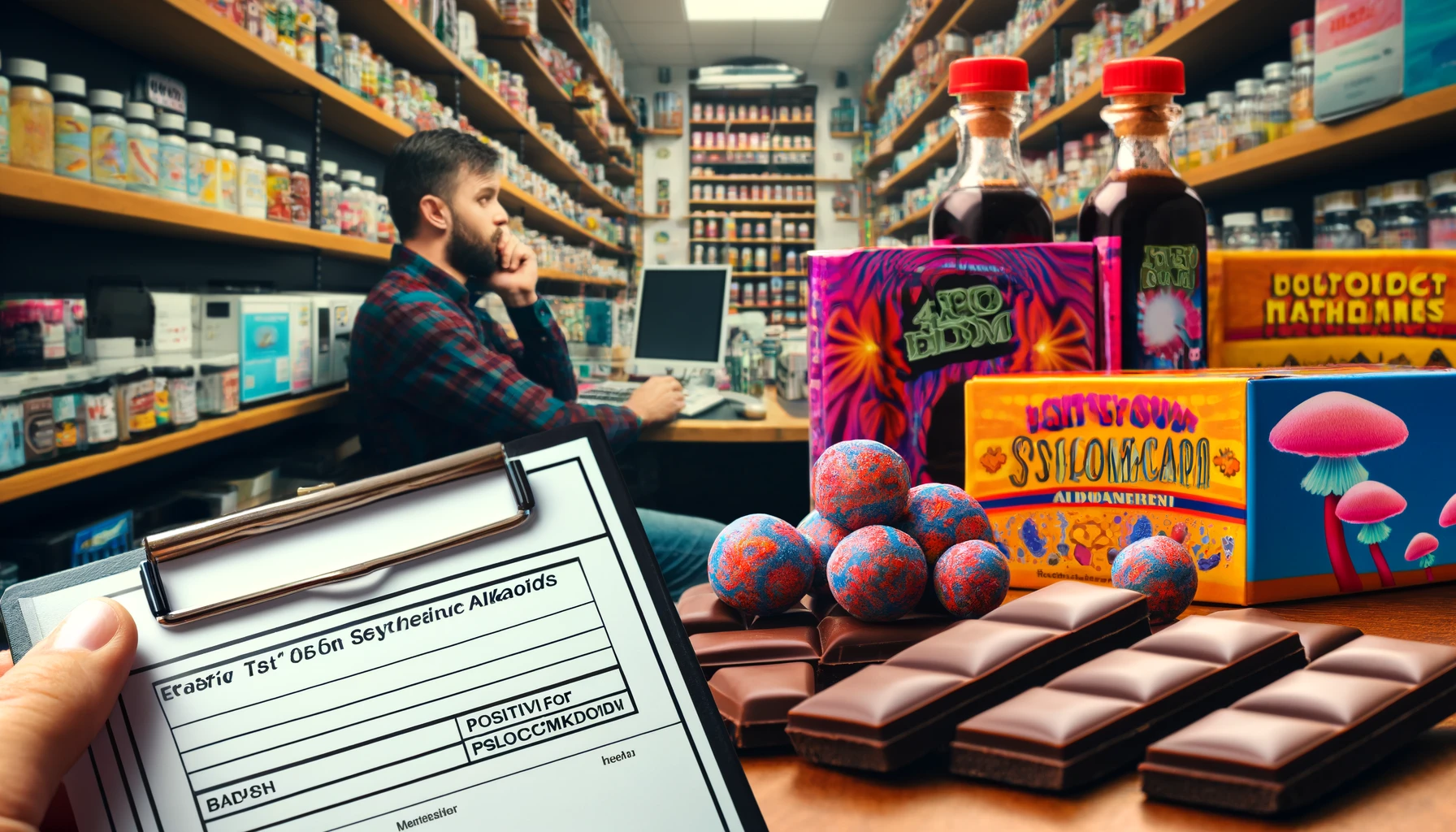THANK YOU!
We sincerely appreciate your generous donation to Entheology Project Inc. As a 508(c)(1)(a) non-profit religious organization, your donation is tax deductible. You will receive an email confirmation for your records, which can be used for tax purposes. Your support helps us continue our mission and make a meaningful impact!
Billing Information
Your credit card will be billed under "Entheology Project Inc." with the description "Donation." If you have any questions or need further assistance, please do not hesitate to contact us. Thank you once again for your support!
Best Regards,
EP Support
info@entheo.info
Looks like there was a problem processing donation.
Small Business Owners: Synthetic “Non-Detect” Magic Mushrooms Can Be A 20 Year Sentence
By Rev

Many small business owners, especially those running small family businesses, may unknowingly sell hallucinogenic products containing synthetic alkaloids like 4-ACO-DET. These synthetic compounds, marketed as “non-detect” magic mushrooms, exploit the lack of established testing standards and the misconception that decriminalization equates to legality. However, the legal risks are substantial and can result in severe penalties.
The Loophole
Manufacturers infuse synthetic, cheap to produce psilocin analogues like 4-ACO-DET, 4-ACO-MET, and other analogues such as 4-HO-MiPT and 4-HO-DPT. These compounds degrade quickly, making them difficult to detect with current testing methods. This and “de-criminalization” give shop owners a false sense of security about their legality.
Decriminalization typically refers to the removal of criminal penalties for personal possession and use of entheogenic substances. It does not necessarily mean that selling or commercializing these products is allowed. The specific regulations and laws regarding the sale and distribution of entheogenic products vary depending on the jurisdiction. It’s important to consult local laws and regulations to understand the specific rules in a particular area (WPR) (ACS Lab) (Wikipedia).
Legal Implications
Under the US Analogues Act, synthetic substances similar to Schedule I or II controlled substances are illegal. This means that distributing or possessing products containing these synthetic alkaloids can result in severe penalties:
- Imprisonment: Up to 20 years for trafficking offenses.
- Fines: Heavy financial penalties.
- Criminal Record: Long-term impacts on personal and professional life.
For head shop owners, these legal repercussions could mean the loss of their livelihood and severe disruptions to their family lives (WPR) (ACS Lab) (Wikipedia).
Increasing Detection Standards
As research progresses, the ability to detect these synthetic substances is improving. Laboratories are developing more sophisticated techniques to identify synthetic psilocin analogues, such as 4-ACO-DMT, in various products (WPR) (ACS Lab). This advancement means that law enforcement agencies are better equipped to identify and prosecute the sale of these substances, making police intervention increasingly likely.
Bay Area Contamination Findings
Recent lab tests on magic mushroom chocolate bars sold in the Bay Area revealed significant contamination issues. Out of 24 bars tested, eight were found to contain 4-AcO-DMT instead of natural psilocybin (Internet Archive) (The San Francisco Standard). This highlights the risks of consuming unregulated mushroom products, as consumers may unknowingly ingest different substances than intended.
Moral and Ethical Concerns
Selling untested and potentially dangerous products to consumers, including minors, is both unethical and irresponsible. The health risks associated with consuming these unregulated substances are unknown and potentially severe. Proper preparation, facilitation, and integration are essential to ensure safe consumption of entheogenic substances (ACS Lab) (Zamnesia) (Fungi Academy).
Protecting Your Business
To avoid legal and ethical pitfalls:
- Educate Yourself: Stay informed about the latest regulations and guidelines regarding psychoactive substances.
- Promote Safety: Inform customers about the potential risks of consuming untested products and the importance of responsible use.
- Go Organic: Properly prepared and facilitated organic sources are less likely to pose health risks compared to synthetic alternatives (ACS Lab).
By taking these steps, small business owners can minimize the risks associated with selling “non-detect” magic mushroom products and protect their businesses from legal trouble.
For more detailed information, visit Entheo.info and SFGate.



 Your payment is protected
Your payment is protected